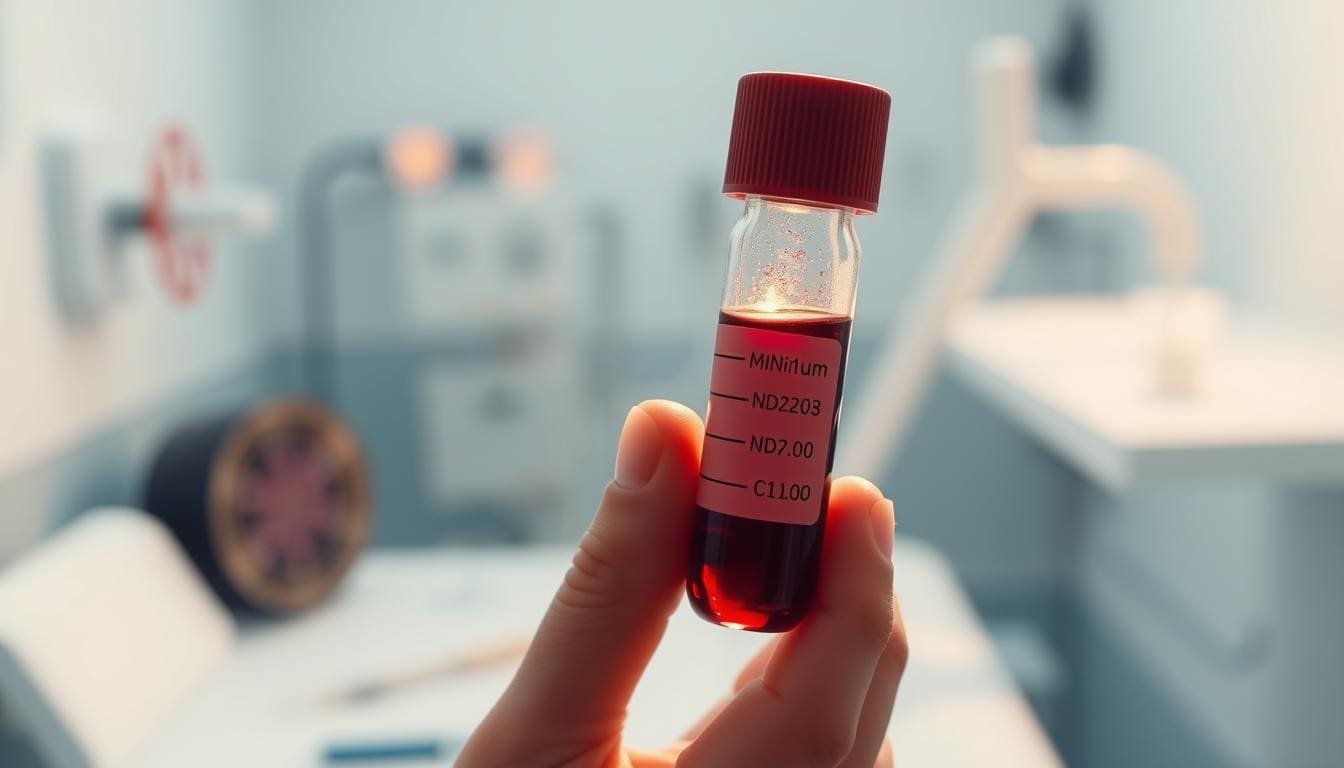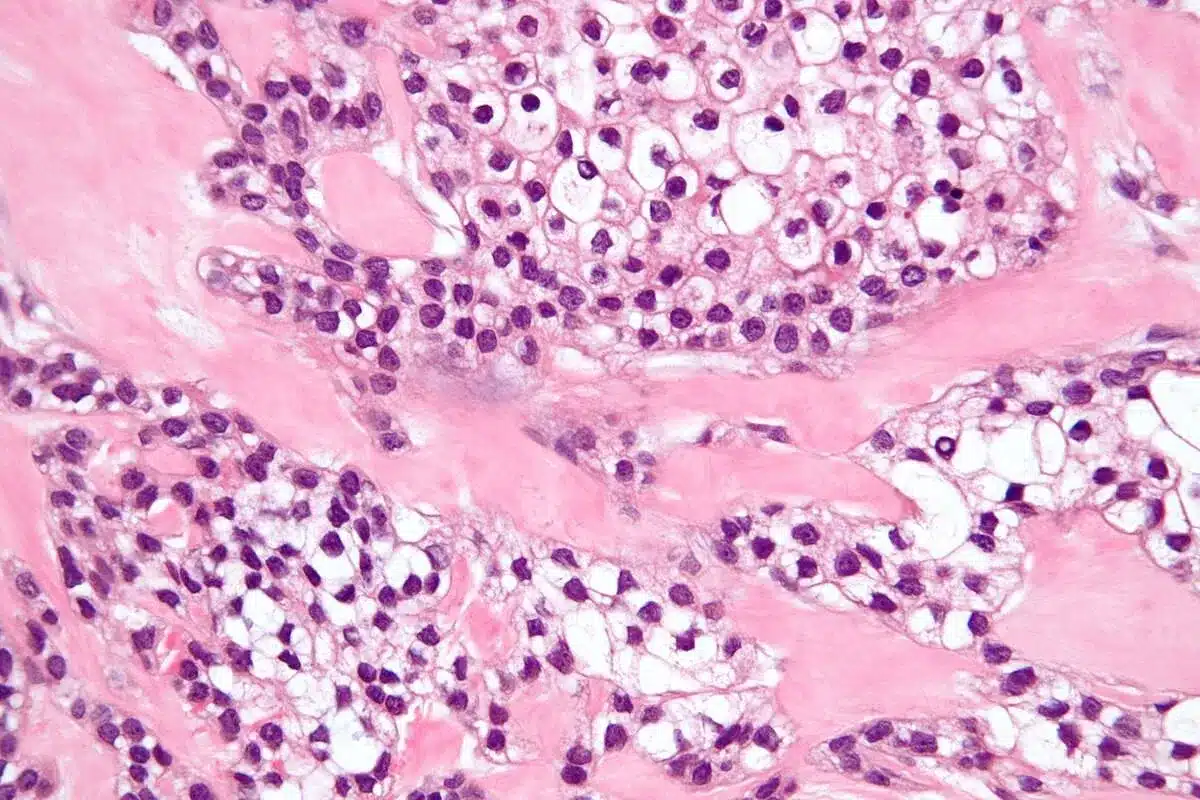
Did you know that low iron levels can put extra strain on your heart, leading to palpitations and other alarming symptoms? At Liv Hospital, where patient care and innovative solutions are key, understanding and addressing these effects is vital for the best health outcomes.
Can low iron cause heart palpitations? Yes — iron deficiency can lead to anemia, a condition where there’s not enough red blood cells or hemoglobin in the blood. This makes the heart work harder to supply oxygen, possibly causing palpitations and other heart problems.
Key Takeaways
- Low iron levels can strain the heart, leading to palpitations.
- Iron deficiency can cause anemia, affecting cardiovascular health.
- Understanding the link between iron levels and heart health is key.
- Liv Hospital emphasizes patient care and innovative solutions.
- Addressing iron deficiency is key to preventing related symptoms.
The Critical Relationship Between Iron and Cardiovascular Health

Keeping iron levels up is key for heart health. It helps carry oxygen around the body. Iron is needed to make hemoglobin, a protein in red blood cells that carries oxygen.
How Iron Supports Blood Oxygen Transport
Iron is vital for making hemoglobin. This lets red blood cells carry enough oxygen to all parts of the body. Without enough iron, tissues and organs might not get the oxygen they need, leading to health problems.
Oxygen transport is a complex process. Iron helps hemoglobin bind and carry oxygen from the lungs to the body’s tissues.
Common Causes of Iron Deficiency
Iron deficiency can come from many sources. It might be from not eating enough iron, losing blood too much, or needing more iron during pregnancy. Knowing these causes helps prevent and manage iron deficiency.
- Inadequate dietary iron intake
- Chronic blood loss due to conditions like ulcers or heavy menstrual periods
- Increased iron requirements during pregnancy
The Cardiovascular System’s Response to Low Iron
When iron is low, the heart works harder. This is because the blood can’t carry as much oxygen. Symptoms like heart palpitations and fatigue can occur.
The heart tries to make up for it by beating faster. But this can put a lot of strain on the heart. Over time, it can make heart problems worse.
Can Low Iron Cause Heart Palpitations? The Scientific Connection

Looking into the connection between iron deficiency and heart palpitations shows a complex mix of body functions. People with iron deficiency anemia often report heart palpitations as a symptom.
Defining Heart Palpitations and Their Sensations
Heart palpitations are when your heartbeat feels irregular or strong. You might feel it pounding, fluttering, or skipping a beat. These feelings can be scary and are common in those with iron deficiency.
Research Evidence Linking Iron Deficiency and Cardiac Symptoms
Many studies have looked into how iron deficiency affects the heart. They found that iron is key for the heart to work right. Not having enough iron can cause heart problems, like palpitations.
- Research shows iron supplements can help with heart palpitations in those with iron deficiency anemia.
- The ways iron deficiency causes palpitations are complex. It includes less oxygen to tissues and more work for the heart.
Risk Factors That Increase Susceptibility
Some people are more likely to get heart palpitations from low iron. This includes those with chronic iron deficiency anemia, heart problems, and those who lose a lot of blood.
Knowing these risk factors helps find who might need iron supplements or other treatments to avoid heart palpitations.
Key Way #1: Reduced Oxygen-Carrying Capacity of Blood
Low iron can cause heart palpitations by reducing blood’s oxygen-carrying ability. This is key for the heart to work right. Less oxygen can start a chain of events leading to palpitations.
How Hemoglobin Production Depends on Iron
Hemoglobin is a protein in red blood cells that carries oxygen. Iron is vital for making hemoglobin, as it’s part of the molecule that grabs oxygen. Without enough iron, the body can’t make enough healthy red blood cells.
This means less oxygen can be carried in the blood. Symptoms like fatigue, shortness of breath, and heart palpitations can follow.
The Heart’s Compensatory Response to Oxygen Deprivation
When tissues don’t get enough oxygen, the heart tries to pump more blood. This makes the heart rate and output go up. The heart works harder to get oxygen to vital organs, which can make palpitations more noticeable.
- Increased heart rate
- Enhanced cardiac output
- Potential for irregular heartbeats
Low Ferritin Heart Palpitations: The Early Warning Sign
Ferritin stores iron in the body, and low levels mean iron deficiency. Low ferritin heart palpitations are a sign of low iron. Catching this early can help prevent serious problems.
Heart palpitations due to low ferritin are serious. They show the body’s iron is very low. Fixing this with diet or supplements can ease symptoms and protect the heart.
Key Way #2: Increased Cardiac Workload and Resulting Strain
When iron levels drop, the heart pumps more blood. This is to meet the body’s oxygen needs. It results in increased cardiac strain. This strain can cause heart palpitations among other symptoms.
The Heart’s Struggle to Maintain Oxygen Delivery
Low iron levels mean tissues don’t get enough oxygen. The heart responds by pumping more blood. This is to meet the oxygen demand, increasing the heart’s workload.
“The heart is a muscular organ that pumps blood throughout the body, and its function is heavily dependent on adequate oxygen delivery,” explains a study on cardiac function. When oxygen delivery is compromised, the heart must work harder to maintain its pumping activity.
How Iron Deficiency Palpitations Develop Over Time
Iron deficiency palpitations can develop gradually. At first, symptoms may not be noticeable. But as iron deficiency worsens, the heart’s workload increases, leading to palpitations.
- Reduced iron stores
- Increased cardiac workload
- Development of palpitations
Over time, the heart’s strain can cause more severe symptoms. These include fatigue, shortness of breath, and dizziness.
Distinguishing Iron-Related Palpitations from Other Causes
It’s important to tell iron-related palpitations from other causes. Iron deficiency palpitations are often accompanied by fatigue and shortness of breath. A thorough medical evaluation can help find the cause of palpitations.
“Iron deficiency is a common cause of palpitations, particular in individuals with underlying cardiovascular conditions.”
A study on iron deficiency and cardiac symptoms
In conclusion, low iron levels can lead to heart palpitations due to increased cardiac workload. Understanding the link between iron deficiency and cardiac symptoms is key for diagnosis and treatment.
Key Way #3: Disruption of Normal Heart Rhythm Regulation
Iron deficiency can affect the heart’s electrical system, causing irregular rhythms. The heart’s rhythm is controlled by electrical impulses. Iron is key to this process.
Iron’s Role in Cardiac Electrical Conduction
Iron is vital for the heart’s electrical system to work right. It helps make proteins that regulate the heart’s rhythm. Low iron can disrupt this, causing irregular heartbeats or heart palpitations.
Here’s how iron affects the heart’s electrical conduction:
- Iron helps make hemoglobin, which carries oxygen to the heart muscle.
- Enough iron is needed for the heart’s electrical system to function well.
- Low iron can disrupt the heart’s electrical activity, causing irregular rhythms.
Types of Arrhythmias Associated with Anemia
Anemia, often from iron deficiency, can cause various arrhythmias. These arrhythmias happen because the heart works harder without enough oxygen.
Some common arrhythmias in anemia include:
- Tachycardia – a heart rate that’s too fast.
- Atrial fibrillation – an irregular and often rapid heart rhythm.
- Premature beats – extra beats before the expected beat.
Heart Palpitations Anaemia: A Common Symptom Complex
Heart palpitations are common in anemia, often due to iron deficiency. The combination of heart palpitations anaemia is a serious symptom complex that needs medical attention.
It’s important to understand the link between iron deficiency, anemia, and heart palpitations. Managing iron levels can help alleviate symptoms and improve heart health.
Key Way #4: Compounding Effect of Dehydration on Iron Deficiency
Dehydration makes iron deficiency symptoms worse, creating a tough health problem. When iron is low, it can cause heart issues like palpitations. Dehydration makes the heart work even harder, making symptoms worse.
Low Iron and Dehydration: A Dangerous Combination
Low iron and dehydration together are very bad. Dehydration lowers blood volume, making the heart pump harder. With less iron, blood can’t carry enough oxygen, making things worse. This mix can cause a fast heart rate, palpitations, and other heart problems.
How Reduced Blood Volume Intensifies Symptoms
Dehydration lowers blood volume, making iron deficiency symptoms worse. With less blood, the heart has to pump harder to keep blood flowing. This can cause heart palpitations and arrhythmias. It also makes it hard for the body to keep a healthy temperature and blood pressure.
Strategies to Maintain Proper Hydration with Anemia
Staying hydrated is key for those with iron deficiency anemia. Drinking plenty of water is important. Also, watch how much urine you make to see if you’re drinking enough. Avoiding caffeine and alcohol helps prevent dehydration. Sometimes, drinks with electrolytes are suggested to keep fluids balanced.
To keep your body hydrated, try these tips:
- Drink at least eight glasses of water per day
- Avoid too much caffeine and alcohol
- Check your urine color to see if you’re hydrated
- Take electrolyte supplements if your doctor says it’s okay
Key Way #5: Fatigue and Shortness of Breath Worsening Cardiac Symptoms
Iron deficiency affects the heart in many ways. Fatigue and shortness of breath make heart problems worse. Low iron means less oxygen gets to the body’s cells, putting extra stress on the heart.
The Vicious Cycle of Fatigue and Heart Strain
Fatigue is a big sign of iron deficiency anemia. It happens because the body can’t make enough hemoglobin to carry oxygen. This makes people tired and they might not move as much, which hurts the heart even more.
Fatigue and heart strain go hand in hand: more fatigue means less activity, which strains the heart more. This cycle needs to be broken to help the heart.
How Respiratory Symptoms Relate to Heart Palpitations
Shortness of breath is common in iron deficiency anemia. Without enough iron, the body can’t carry enough oxygen. This makes breathing harder, leading to more frequent breaths.
“The sensation of shortness of breath can be very distressing, often causing anxiety, which can make heart palpitations worse.”
Respiratory symptoms and heart palpitations are closely linked. The stress and anxiety from breathing problems can make palpitations worse. So, it’s important to manage breathing issues to help the heart.
Managing Activity Levels with Iron Deficiency
It’s important to manage how active you are with iron deficiency anemia. You might need to do less strenuous activities to avoid getting too tired or short of breath. But, not moving enough can also harm the heart over time.
| Activity Level | Impact on Cardiac Symptoms | Management Strategy |
| High | Increased strain on the heart, potentially worsening palpitations | Reduce intensity and frequency of strenuous activities |
| Moderate | Balanced activity can help maintain cardiovascular health | Engage in regular, moderate exercise tailored to individual tolerance |
| Low | Deconditioning can occur, potentially leading to increased cardiac strain over time | Gradually increase activity levels as iron levels and overall health improve |
Understanding how fatigue, shortness of breath, and heart symptoms are connected is key. People with iron deficiency anemia can manage their condition better. This can help reduce heart palpitations and improve their quality of life.
Key Way #6: Skin and Tissue Manifestations of Poor Circulation
Skin and tissue signs are often missed signs of poor circulation. Low iron levels can harm not just the heart but also show on the skin and tissues.
Low Iron Dry Skin: Understanding the Connection
Low iron can cause iron deficiency anemia. This makes it hard for the body to send oxygen to tissues and organs. As a result, the skin can become dry and pale.
The skin needs a lot of oxygen and nutrients to stay healthy. Poor circulation from low iron can make the skin dry, itchy, and even crack.
Iron Deficiency and Dry Skin: Mechanisms and Management
The link between iron deficiency and dry skin is due to less hemoglobin. Hemoglobin is a protein in red blood cells that carries oxygen. Without enough iron, hemoglobin production drops, reducing oxygen to the skin and tissues.
To manage iron deficiency and dry skin, you need to fix the iron issue. This might mean eating more iron-rich foods, taking supplements, or using moisturizers.
- Eat more iron-rich foods like red meat, spinach, and fortified cereals.
- Choose gentle skin care products that keep the skin’s natural oils.
- Stay away from harsh soaps and detergents that dry out the skin.
How Skin Symptoms Signal Cardiovascular Effects
Skin signs like dryness and paleness can hint at heart problems from low iron. These signs mean the body’s tissues aren’t getting enough oxygen. This can lead to serious heart issues if not treated.
By noticing and treating skin signs of poor circulation, you can avoid bigger heart problems. Watch for other signs of iron deficiency anemia and see a doctor if they don’t get better or get worse.
Key Way #7: Metabolic Demands and Appetite Changes
Iron deficiency affects how our body uses energy and how hungry we feel. Iron is key for making hemoglobin, which carries oxygen. Low iron means less oxygen gets to our cells, leading to changes in how we feel.
Energy Production Deficits in Iron Deficiency
Iron helps make ATP, the energy for our cells. Without enough iron, our cells don’t get enough energy. This makes us tired, weak, and not feel well. Our body’s energy problems can make us feel more tired and weak.
Can Iron Deficiency Cause Loss of Appetite?
Yes, iron deficiency can make us lose our appetite. The exact reasons are not clear, but it’s thought that anemia and metabolic changes affect how we feel hungry. Some studies link inflammation from iron deficiency to less hunger. Also, feeling tired and not well can make us not want to eat.
| Symptom | Description | Relation to Iron Deficiency |
| Loss of Appetite | Reduced desire to eat | Associated with inflammation and metabolic changes |
| Fatigue | Feeling tired or weak | Direct result of reduced energy production |
| Shortness of Breath | Difficulty breathing | Result of inadequate oxygen delivery |
Nutritional Strategies to Support Heart Health with Anemia
Dealing with iron deficiency anemia needs a good nutrition plan. Eating more iron-rich foods or taking supplements is key. Vitamin C helps our body absorb iron better, so eating foods high in vitamin C with iron can help. Also, eating a variety of fruits, veggies, whole grains, and lean proteins is good for our heart.
We should also eat to keep our heart healthy. This means eating less salt, choosing healthy fats, and eating foods with omega-3s. Eating well and taking iron supplements can help with anemia symptoms and heart health.
Diagnosis, Treatment, and Prevention of Iron-Related Heart Symptoms
It’s important to understand how to diagnose, treat, and prevent iron-related heart symptoms. Low iron can cause heart palpitations. A full approach is needed to manage these issues.
Essential Blood Tests for Iron Status Assessment
Several blood tests are key to diagnosing iron deficiency and its effects on the heart. These tests help doctors figure out the best treatment.
- Serum Ferritin Test: Shows the stored iron in the body, helping spot iron deficiency.
- Serum Iron Test: Checks the current iron level in the blood.
- Total Iron-Binding Capacity (TIBC) Test: Looks at the blood’s ability to bind iron, helping diagnose deficiency.
- Transferrin Saturation Test: Shows how much iron is bound to transferrin, aiding in diagnosis.
| Blood Test | Purpose | Normal Range |
| Serum Ferritin | Measures stored iron | 20-250 ng/mL |
| Serum Iron | Evaluates current iron level | 60-170 mcg/dL |
| TIBC | Assesses iron-binding capacity | 240-450 mcg/dL |
| Transferrin Saturation | Measures iron saturation | 20-50% |
Effective Iron Supplementation Approaches
Iron supplements are often used to treat iron deficiency. The type of supplement depends on the person’s needs and how well they can tolerate it.
Types of Iron Supplements:
- Ferrous Sulfate: Often chosen because it’s effective and affordable.
- Ferrous Gluconate: Recommended for those who can’t tolerate ferrous sulfate.
- Ferrous Fumarate: A good option for some people.
Dietary Changes to Improve Iron Absorption
Changing your diet can also help improve iron levels. Eating iron-rich foods and knowing how to better absorb iron can manage deficiency.
Iron-Rich Foods:
- Red meat
- Poultry
- Fish
- Legumes (lentils, chickpeas)
- Leafy greens (spinach, kale)
- Nuts and seeds (pumpkin seeds, sesame seeds)
Eating foods high in vitamin C (like citrus fruits and bell peppers) with iron-rich foods can boost absorption. Avoiding tea and coffee with meals also helps, as they can reduce iron absorption.
Conclusion
Iron deficiency can harm your heart health, causing heart palpitations. Low iron levels affect how well blood carries oxygen. This can make your heart work harder and disrupt its rhythm.
People with iron deficiency often feel tired, have trouble breathing, and may have dry skin. Eating foods rich in iron, taking supplements, and staying hydrated can help. These steps can ease symptoms and prevent heart problems.
To avoid iron deficiency palpitations, it’s important to keep your iron levels healthy. If you’re experiencing these symptoms, see a doctor. They can help diagnose and treat the issue.
FAQ
Can low iron levels cause heart palpitations?
Yes, low iron levels can cause heart palpitations. Iron is key for carrying oxygen to our bodies. Without enough, our heart rate can go up, leading to palpitations.
What is the connection between iron deficiency and heart palpitations?
Iron deficiency makes our blood carry less oxygen. This forces our heart to work harder, which can cause palpitations.
Can dehydration worsen iron deficiency symptoms, including heart palpitations?
Yes, dehydration can make iron deficiency symptoms worse. It reduces blood volume, making symptoms like palpitations more intense.
How does iron deficiency affect the heart’s rhythm regulation?
Iron is important for the heart’s electrical signals. Without enough, the heart’s rhythm can get disrupted, leading to arrhythmias and palpitations.
Can iron deficiency cause dry skin?
Yes, iron deficiency can cause dry skin. Iron helps keep our skin and tissues healthy, so a lack of it can lead to dryness.
Does iron deficiency cause loss of appetite?
Yes, iron deficiency can cause a loss of appetite. It affects how our body produces energy, leading to changes in appetite and nutritional deficiencies.
How can iron-related heart symptoms be diagnosed and treated?
Blood tests can check iron levels. Iron supplements and dietary changes can help manage symptoms. These steps can improve heart health.
What are the nutritional strategies to support heart health with anemia?
To support heart health with anemia, eat iron-rich foods and vitamin C to help absorb iron. Also, eat a balanced diet to address nutritional gaps.
Can iron deficiency lead to fatigue and shortness of breath?
Yes, iron deficiency can cause fatigue and shortness of breath. These symptoms can make heart palpitations worse.
How can activity levels be managed with iron deficiency?
Manage activity levels by pacing yourself and taking breaks. Avoid overexertion to prevent worsening symptoms.
References
- Hegde, N. (2006). The cardiomyopathy of iron deficiency. Indian Journal of Pediatrics, 73(9), 793-797. https://pmc.ncbi.nlm.nih.gov/articles/PMC1592266/








